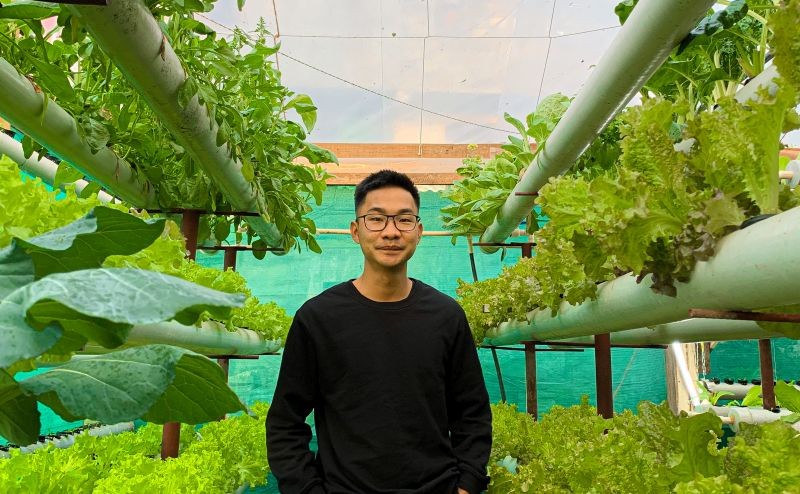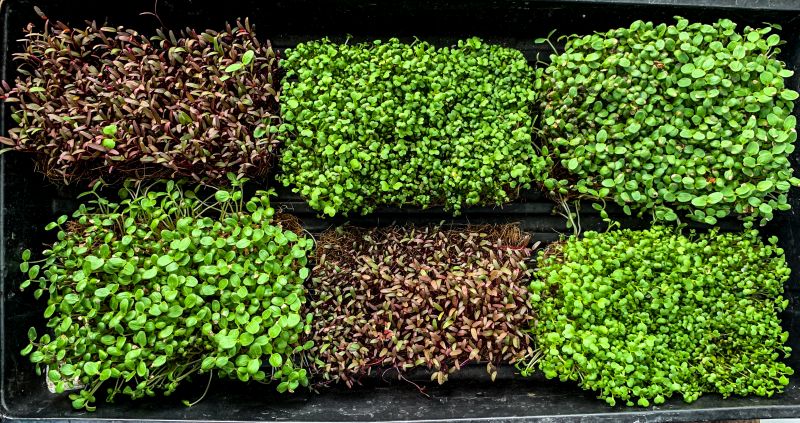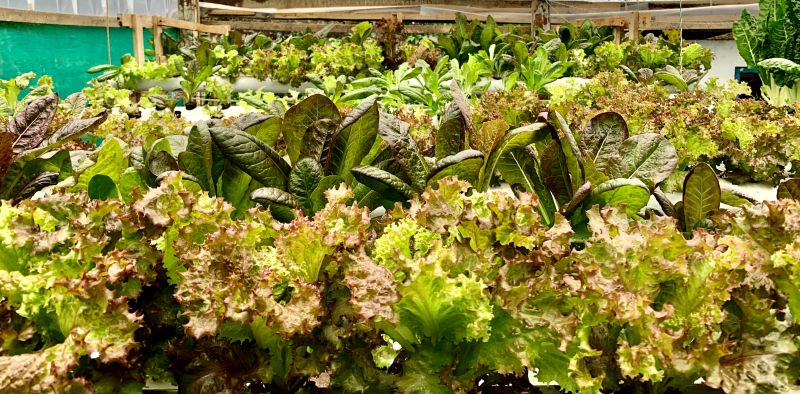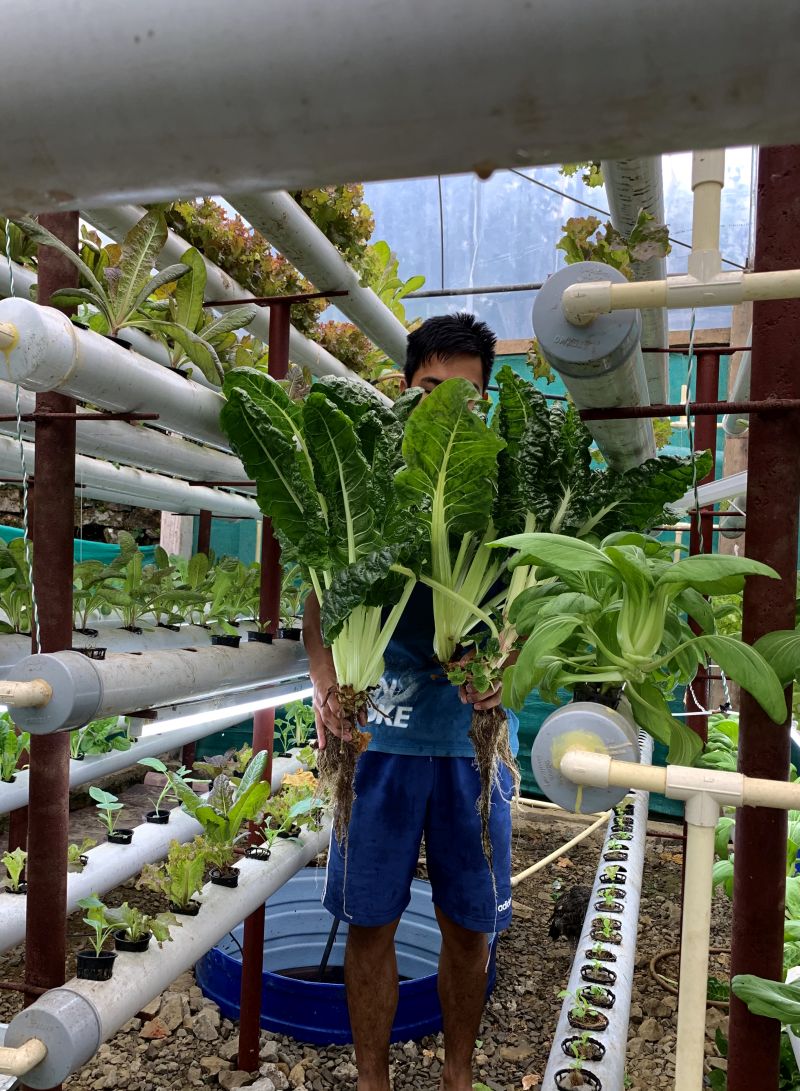Thunglamo T Humtsoe, Founder and Proprietor of Urban Grower.

Morung Express News
Kohima | July 21
At 28, Thunglamo T Humtsoe has created a niche in commercial farming in Nagaland through the Urban Grower. Established in 2019 and based in Wokha, Urban Grower is the first commercial hydroponic farming in Nagaland producing leafy greens, herbs and micro greens.
The basic concept of a hydroponic farm is that soil is substituted with water.
A growing population and increasing demand for more nutritious food, is likely to challenge indigenous farming in meeting such demands. Furthermore, intensive indigenous farming will impact the soil, water and health, says Humtsoe. “If we can practice alternate farming method by taking advantage on innovative agricultural technologies which is sustainable and conventional, we can produce more nutrient rich vegetables by utilizing minimum land usage with no chemicals and pollution,” he shares.
For the past few years, Humtsoe and his team at the Urban Grower Farm has been studying climatic variations for the crops, acquiring inputs and farm materials. The team has also conducted series of consultation services/trainings for students and collaborated with other companies and governmental departments in organising exhibition and workshop programmes. 
“We started our journey with Aquaponics but it was short lived due to the lack of resources. So, we converted our system to hydroponics as an experimental stage. We’re still researching and experimenting with various vegetables while exporting our products on weekly basis,” says Humtsoe who holds a Bachelor’s degree in Agriculture Science, and a Master's degree in Agriculture Soil Science from SHUATS Allahabad.
The Urban Grower farm has full time employees attached at the farm, and is further assisted by a Delivery team in Kohima (Yv Delivery) and Dimapur (Dl Delivery) which helps them deliver their products to clients.
At present, the farm's produces are catered to restaurants, events and hand out home deliveries in Wokha, Kohima, and Dimapur. The orders are mostly taken for pre-bookings, covering leafy green, herbs and micro greens which are particularly grown based on demands. As the farm continuously attempts to improve its services and increase its production, Humtsoe believes that this subtle shift from traditional agriculture to hydroponic farming will enable the production of different varieties of food, at any time of the year and receive higher yields with fewer resources.
While Nagaland is abundant in vegetable crops, Humtsoe states that these crops are only seasonally available and growing exotic varieties tends to be crucial with regard to diseases and climatic parameters. “Hydroponic farming tackles these interferences with the help of agricultural technologies. With intensive deforestation for agriculture purpose, we are focusing on sustainability, conventional and efficient use of land and water without impairing land and water,” views Humtsoe.
While the concept of Hydroponic farming is still a rarity in Nagaland, Humtsoe believes in its economic potential. Further, with the decrease in availability of land for conventional farming, hydroponic farming provides one of the best sustainable farming solutions.
Hydroponic farming, for Humtsoe, can be a sustainable farming solution which will not only generate income, but also help keep pace with the food demand.






